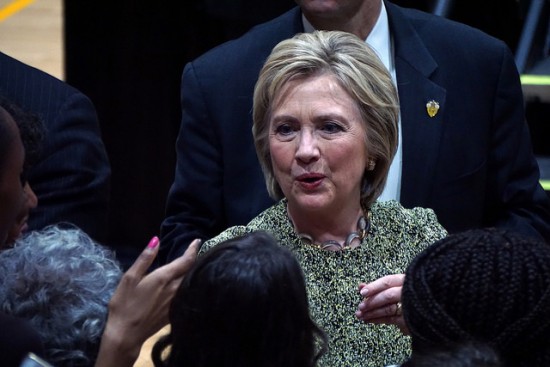
A Real Problem of Transparency
Klein spells out some examples of Clinton building rapport by listening and, more importantly, stepping up to take action, but this isn’t what came to mind for me at this point. Jackie Richter did.
I hadn’t heard of Jackie Richter — the owner of a construction company here in my home state of Illinois — until I read about her story in Politico recently. Richter is a transgender woman who has become an outspoken supporter of Hillary Clinton, all because Clinton did something that very few people even knew about: She implemented a rule that allowed transgender individuals to register their correct gender identity on their US passports.
How did that happen? After all, Clinton is somewhat regarded as having a mixed record on LGBT issues until more recently, having supported DOMA and DADT in the Bill Clinton era. To put it simply, she listened:
When Clinton started as Secretary of State, in January of 2009, she inherited a department that LGBT staffers had seen as indifferent to their rights during the George W. Bush administration. They grumbled that the department would pay for their pets, but not their partners, to travel to posts around the world. Clinton, on the other hand, signaled immediately her commitment to LGBT issues, setting up meetings—personally or with top staff—with advocacy groups like the Council for Global Equality, the National Center for Transgender Equality and the Human Rights Campaign, as well as the in-house organization called Gays and Lesbians in Foreign Affairs Agencies. They had long lists of pent-up requests. The Clinton State Department addressed them.
“We were always getting a yes,” Jon Tollefson, a GLIFFA president during Clinton’s tenure, told me, “so we just kept going.”
To LGBT people and advocates, within the State Department and around the country, what Clinton was doing wasn’t a total surprise. The extent of her commitment, though, was a revelation. …
But nothing Clinton did on this front was more ahead of its time than the transgender passport policy.
“We had never, and I mean never, had the federal government do a pro-trans policy before,” said [Mara] Keisling from [the National Center for Transgender Equality].
But Clinton didn’t shout about these progressive policy changes. In fact, she stayed rather quiet about them, in part because they weren’t politically popular moves.
When Clinton talks about being a “progressive who gets things done,” this is the kind of thing that she is likely talking about, and often it’s not something that filters out to the public — which is a huge problem for her public perception.
Jackie Richter, on the other hand, is still fiercely loyal to Clinton. Of LGBT people who favored Sanders over Clinton, she said, “Look, motherfuckers, how could you do this to this woman when she’s done so much for this community?”
All over something that very few people even knew Clinton had done.
The Daily Grind of Relationship Building
One other interesting part of Clinton’s interview with Ezra Klein mentioned at the beginning of this piece is that she channeled, of all people, Max Weber:
“A lot of governing is the slow, hard boring of hard boards,” she says. “I don’t think there’s anything sexy, exciting, or headline-grabbing about it. I think it is getting up every day, building the relationships, finding whatever sliver of common ground you can occupy, never, ever giving up in continuing to reach out even to people who are sworn political partisan adversaries.”
To put it another way, Clinton sees politics not in terms of grand revolutions but (to use a video game term) of grinding, the tedious negotiations between ideological opponents. And she’s got a long list of those in her past, from Trent Lott to Newt Gingrich to Rick Santorum to Bill Frist, all of whom she worked on various issues even despite some very ugly history.
Of course, in this increasingly polarized climate, that will likely be harder than ever to accomplish. But Clinton’s philosophy toward progress, as the hard-fought incremental pushing toward one’s ultimate goals, and her emphasis on relationship-building may make her the ideal candidate for that right now.
In fact, just having a candidate so radically devoted to the art of listening might just be a revolution in itself.
Images from PBS NewsHour (screenshot via YouTube) and NathaniaJohnson via Foter.com (CC BY 2.0)















